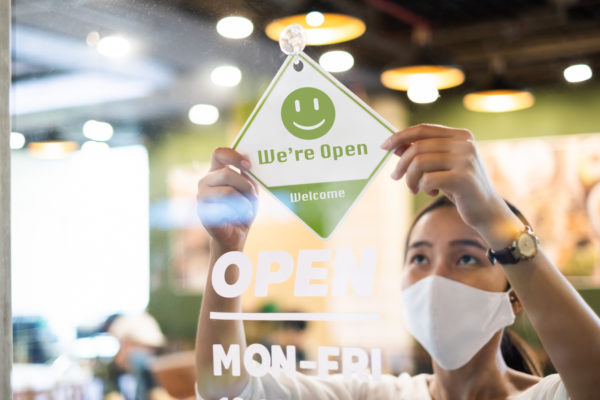The COVID-19 pandemic has taken all of us into uncharted waters. After an unprecedented near nationwide shutdown, many states are going through the process of reopening. For business owners, the ability to re-open is often crucial to the very survival of the business. At the same time, a business may have valid concerns about the possibility that an employee or customer could contract the virus while on the premises, resulting in the filing of a lawsuit against the business. In an effort to avoid costly litigation, some businesses are requiring workers and/or customers to sign a liability waiver — but do waivers actually work?
Are Waivers the New Normal?

Just as social distancing and wearing a mask in public have become the new normal, signing a liability waiver before returning to work or entering a business may also be commonplace going forward. The New York Stock Exchange is requiring traders to sign a waiver before entering the trading floor, while Walt Disney Co.’s website cites “severe illness and death” risks for customers at its Orlando, Florida, amusement parks. The Trump campaign even had attendees at a rally sign a waiver agreeing not to sue the campaign if they contract the virus.
Why Are Businesses Requiring Waivers?
Business owners are contemplating the use of waivers to avoid the very real possibility of costly litigation that could ensue if a worker or customer claims they contracted COVID-19 at the business.
Typically, workers are covered under workers’ compensation if they are injured or become ill on the job, but questions remain unanswered regarding Covid-19 coverage. In order to qualify for workers’ compensation benefits, a worker need not prove that the employer did anything wrong, only that the injury or illness is job-related. Illnesses like the cold or flu, however, are not usually covered under Florida’s workers’ compensation laws, because they are seen as a hazard of daily living. Though the Florida Department of Financial Services has issued a directive to honor Covid-19 claims made by frontline state employees (such as police officers, first responders, corrections officers, state healthcare employees, child safety investigators and active national guard members), this directive has not been categorically extended to all employees, which could leave employers vulnerable to negligence lawsuits if Covid-19 claims are treated like cold or flu claims.
Customers have long been able to pursue a personal injury lawsuit based on the concept of premises liability if they were injured or became ill as a result of the business owner’s negligence. For a business that already suffered significant economic losses during stay at home orders, the prospect of a hefty damages award may be enough to implement the use of a liability waiver.
Does a Liability Waiver Really Work?
It depends. The basic idea behind a liability waiver in the context of the coronavirus pandemic is to protect a business from liability for damages if someone contracts the virus while working or visiting the business. In legal terms, this is accomplished by asking the person executing the waiver to “assume the risk” of contracting the virus. Can a waiver actually protect a business though? The answer is less than certain, – and depends on a variety of factors that are likely to change in the coming months.
Liability waivers have historically been limited by the courts in three important ways. First, only known risks can be assumed by the person signing the waiver –, meaning a waiver must clearly state the risks – (in this case, contracting COVID-19). Second, it must be a voluntary assumption of the risk. Finally, a waiver must be consistent with public policy, which may present issues for both employee and visitor waivers due to the bargaining position between employees and employers, as well as certain businesses and visitors that are consumers.
Additionally, Florida courts have made clear that they will not enforce waivers that attempt to protect a business from actions arising from the business’s gross negligence or intentional acts. Likewise, a waiver that requires an employee to waive the right to workers’ compensation or unemployment benefits is also unenforceable.
Should I Require a Waiver for My Business?
If you are a business owner who is concerned about your liability exposure during the coronavirus pandemic, it is in your best interest to consult with an experienced business law attorney before you consider utilizing a liability waiver. Additionally, business owners should carefully analyze the potential non-legal impact of requiring visitors or employees to sign waivers (i.e., potential effect on image). While a carefully drafted waiver may provide your business with some protection, it should be uniquely tailored both to your business and to the ever-changing laws relating to COVID-19.